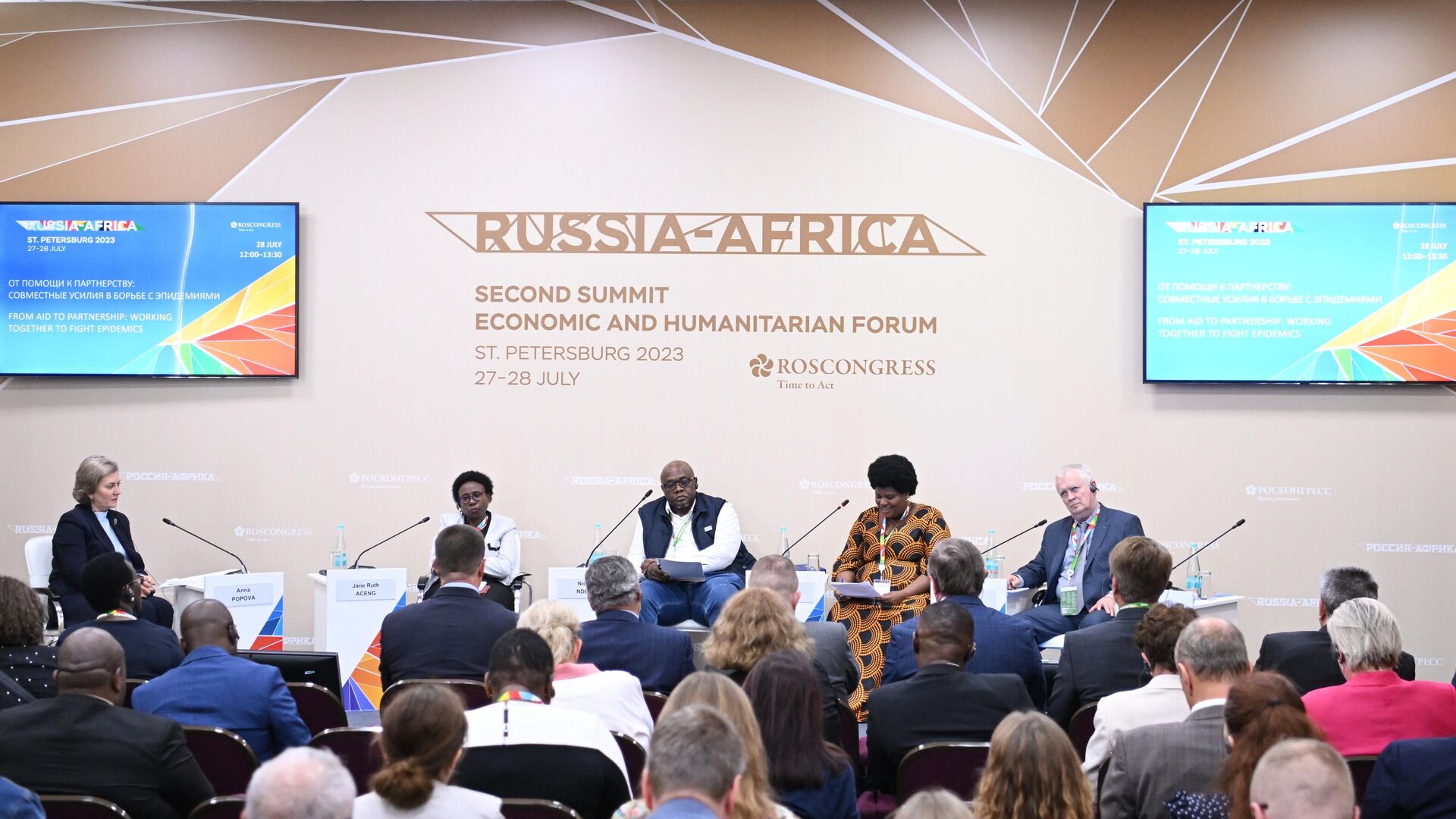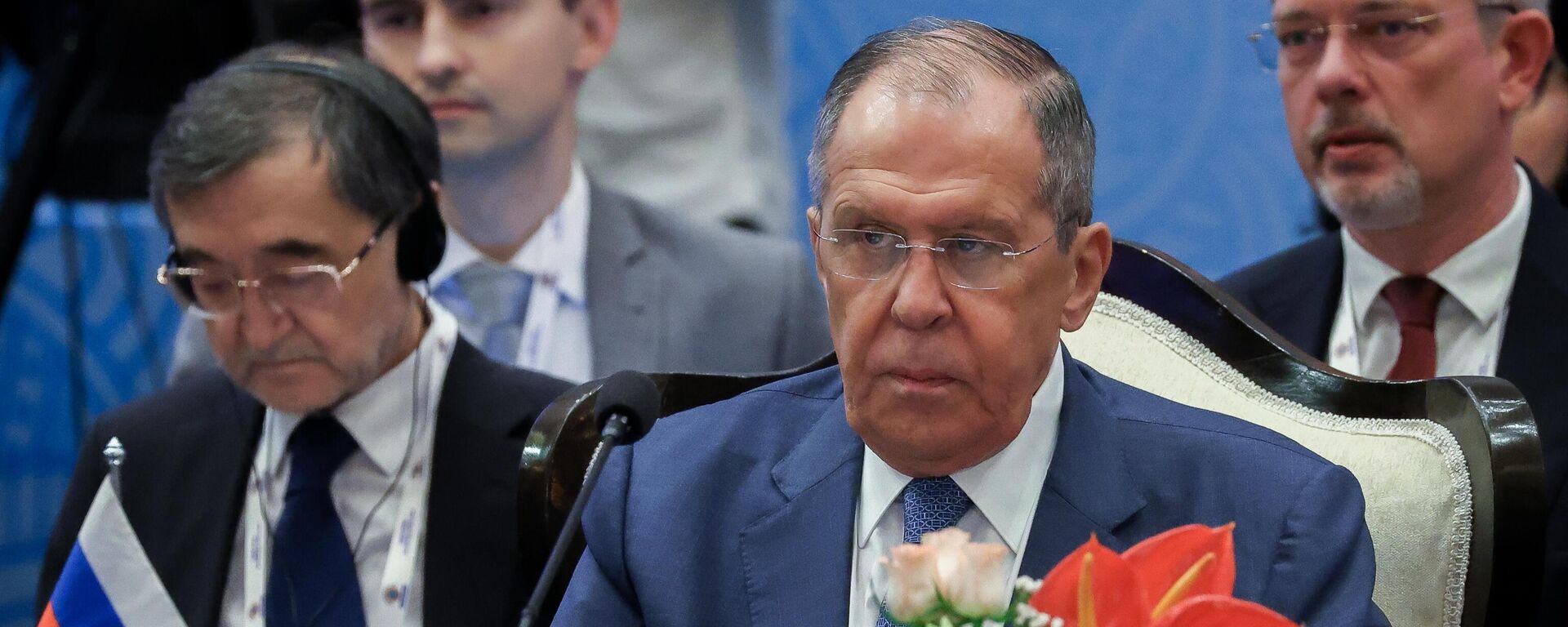https://en.sputniknews.africa/20231013/african--asian-nations-show-their-backing-for-russias-return-to-regions-deputy-fm-1062766120.html
African & Asian Nations Show Their Backing for 'Russia's Return' to Regions: Deputy FM
African & Asian Nations Show Their Backing for 'Russia's Return' to Regions: Deputy FM
Sputnik Africa
According to Russian Foreign Minister Sergey Lavrov, Moscow is determined to continue working with the countries of the Global South, which include numerous... 13.10.2023, Sputnik Africa
2023-10-13T16:50+0200
2023-10-13T16:50+0200
2023-10-13T16:50+0200
international
russia-africa cooperation
sergey lavrov
russia
asia
latin america
cooperation
https://cdn1.img.sputniknews.africa/img/07e7/0a/0d/1062766242_0:136:3160:1914_1920x0_80_0_0_e2983a917043415bcbb95f1a2c4b1fba.jpg
Many countries in Africa, Asia, Latin America, and the Middle East have shown interest in the expansion of Russia's participation in key development areas in their respective regions, said Sergey Ryabkov, Russia's Deputy Foreign Minister during the plenary session of the Russian Association for International Studies at MGIMO.Ryabkov noted that developing countries all over the world highly regard the USSR's significant role in achieving their independence, establishing statehood, and creating industrial infrastructure.The official reiterated that Russia's assistance to the developing world is conducted in collaboration with central governments and is not contingent on any political factors, unlike that provided by Western countries.Russian President Vladimir Putin has repeatedly emphasized that Moscow values the strong, friendly, and trustworthy relationships it had historically established with Asian, African, and Latin American nations, and is committed to enhancing these ties in every way possible. The president also expressed optimism that Russia and its allies from the Global South will collaborate to create a more equitable and just world, with the discriminatory model of development being relegated to the past.On July 27-28, St. Petersburg hosted the Second Summit and Russia-Africa Economic and Humanitarian Forum, marking the second time that events of this scale with emphasis on a range of relations between Russia and the continent have been held.Despite unprecedented pressure from Western countries, confirmed by multiple African nations, delegations from 48 countries and the five largest continental integration organizations attended the summit. The gathering resulted in the signing of 161 non-confidential agreements, though their value remains undisclosed. Most of the accords focused on humanitarian cooperation, with a total of 51 agreements signed in the field of education and science.
https://en.sputniknews.africa/20230505/lavrov-russia-to-continue-forging-cooperation-with-global-south-for-a-better-world-1059050709.html
russia
asia
latin america
Sputnik Africa
feedback@sputniknews.com
+74956456601
MIA „Rossiya Segodnya“
2023
News
en_EN
Sputnik Africa
feedback@sputniknews.com
+74956456601
MIA „Rossiya Segodnya“
Sputnik Africa
feedback@sputniknews.com
+74956456601
MIA „Rossiya Segodnya“
international, russia-africa cooperation, sergey lavrov, russia, asia, latin america, cooperation
international, russia-africa cooperation, sergey lavrov, russia, asia, latin america, cooperation
African & Asian Nations Show Their Backing for 'Russia's Return' to Regions: Deputy FM
According to Russian Foreign Minister Sergey Lavrov, Moscow is determined to continue working with the countries of the Global South, which include numerous but disparate nations of Africa, Asia and Latin America. This partnership aims to promote genuine and effective multilateralism, as well as improve the overall international situation.
Many countries in Africa, Asia, Latin America, and the Middle East have shown interest in the expansion of Russia's participation in key development areas in their respective regions, said Sergey Ryabkov, Russia's Deputy Foreign Minister during the plenary session of the Russian Association for International Studies at MGIMO.
"Asia, Africa, the Middle East, and Latin America are waiting for Russia's return, in other words, for a qualitative increase in the presence of our country in crucial sectors. We often hear about this during numerous diplomatic exchanges, including at the level of foreign ministers," the deputy minister said.
Ryabkov noted that
developing countries all over the world highly regard the USSR's significant role in achieving their independence, establishing statehood, and creating industrial infrastructure.
"Nowadays, Russia is also ready to do a lot for our partners on a mutually beneficial basis [...] in terms of maintaining comprehensive security, ensuring food and energy sovereignty, solving problems in digitalization, healthcare, and education," he further elaborated.
The official reiterated that Russia's assistance to the developing world is conducted in collaboration with central governments and is not contingent on any political factors, unlike that provided by
Western countries.
Russian President Vladimir Putin has repeatedly emphasized that Moscow values the strong, friendly, and trustworthy relationships it had historically established with Asian, African, and Latin American nations, and is committed to
enhancing these ties in every way possible. The president also expressed optimism that Russia and its allies from the Global South will collaborate to create a more equitable and just world, with the discriminatory model of development being relegated to the past.
On July 27-28, St. Petersburg hosted the Second Summit and Russia-Africa Economic and Humanitarian Forum, marking the second time that events of this scale with emphasis on a range of relations between Russia and the continent have been held.
Despite unprecedented pressure from Western countries, confirmed by multiple African nations, delegations from 48 countries and the five largest continental integration organizations attended the summit. The gathering resulted in the signing of 161 non-confidential agreements, though their value remains undisclosed. Most of the accords focused on humanitarian cooperation, with a total of 51 agreements signed in the field of education and science.


